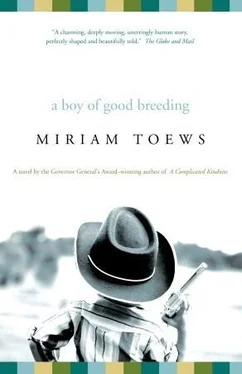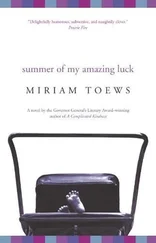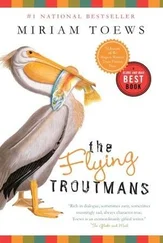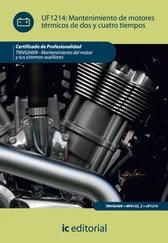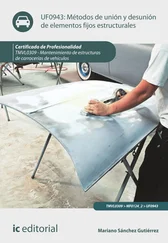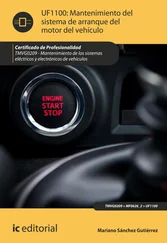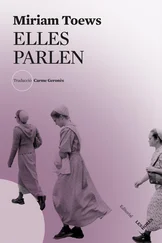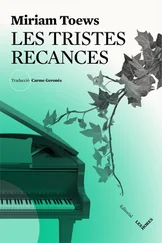Euphemia sat down on the bed beside Hosea. She stroked his back. She didn’t try to remove the pillow. She moved her thumb up and down the back of his neck, dipping in and out of its soft hollow and feeling his hairline begin just above it. She put her mouth to his curls and kissed them.
“C’mon, Hosea,” she whispered, “we’re going.”

Euphemia’s parents had tried, in the end, to get them to stay. They had been angry and shocked and hurt and embarrassed, but they weren’t the kind of people to throw their daughter and grandson out on to the street. Why hadn’t she told them the truth? they asked Euphemia, to which she responded with a shrug. Euphemia’s father had told her she was a tramp, but had then apologized. Minty had been grounded for two weeks, which, after a day, was modified to one week, and had told Euphemia a thousand times she was sorry. Euphemia’s mother had asked her who the father was and Euphemia said she had no idea, a man on a horse. “Oh, Phemie, not that old cock and bull story,” her mother would say. “Your mother’s right, Phemie, that dog won’t hunt,” her father would echo, and Euphemia said calmly, “It’s true, that part of it is true.” Euphemia’s father would rise from the table and slam his fist down and curse Euphemia up one side and down the other and would then lie on the couch, spent and despondent.
But all the while Euphemia was packing her bags. In her mind she had already moved on. She had left. She had locked up this part of her life and thrown away the key. She had turned the page. The next morning she and Hosea were standing on the side of the road, hitching a ride to town.
Hosea would miss the farm. He’d miss Minty. He had planned to marry her when he was older. He was sorry he hadn’t punched her in the stomach when she had begged him to. But he didn’t really know why they had to go. He had crossed his heart and hoped to die in that old car, in the field with Minty. He had bothered his mother at the supper table. He had pretended to crawl into her stomach. He had thought it was funny but his grandpa and grandma were very angry and Minty was crying and now he and his mother were moving to town. He had heard his grandpa yell, “She’s his mother, for God’s sake,” and he hadn’t known why that was suddenly a problem. She had always been his mother and Grandpa had been happy. He had offered to play catch with Minty, thinking that might be it, but she said it was no use, it didn’t matter anymore.
Hosea stood at the side of the road and tugged at his shirt.
“Please,” said Euphemia and straightened out his arm. “C’mon, Hosea, let’s walk for a while.”
“But what about our boxes?” Hosea said.
“Hmmm,” said Euphemia, “we’ll just leave them right here and when we get a ride, we’ll ask the driver to come back and pick them up.”
They walked together towards town. Euphemia asked Hosea if his boots were pinching his toes yet, and he said no.
“That’s good,” she said. Hosea asked Euphemia if she’d give him a piggyback ride. She hoisted him up onto her back, and reminded him every twenty yards or so to put his arms around her shoulders and not her neck. After about half an hour they stopped and walked into the ditch and through it and up the other side and sat in the grass and leaned against a farmer’s fence.
“Hosea,” said Euphemia.
“What?” said Hosea.
“You did come from me, from inside me, inside my stomach.”
“Oh,” said Hosea. He pulled out some grass and started to make a pile.
“I’m your mother, Hosea, your real honest-to-goodness mother.”
Hosea looked up at her briefly and smiled and nodded.
“Do I got a dad?”
“He’s a cowboy.”
“Where is he?”
“Well, I suppose he’s riding the range. Cowboy’s can’t stay put, Hose.”
“That’s good,” said Hosea. He threw a piece of grass into Euphemia’s lap. And then another and another until he had made himself a pillow, and he put his head down on it and had a little nap.
“Why can’t I come along?” Summer Feelin’ wanted to go with Knute to work. Every time Knute made a move to get dressed, brush her teeth, eat breakfast, Summer Feelin’ made exactly the same move. She wasn’t letting Knute out of her sight.
“Because. I’ll be working.”
“So?”
“Well, I’m working for the mayor.”
“So?”
“So, it’s … detailed work.”
Summer Feelin’ was quiet for about ten seconds. Dory gave Knute a look (raised eyebrows, chin on chest) from the sink indicating she could have done better with the explanation.
“Grandma and Grandpa are boring,” said S.F. finally.
“Summer Feelin’!”
“Well, goodness, Knutie, it’s true, isn’t it?” said Dory, staring directly at Tom.
“No, no,” Knute began to say, glaring at S.F. and wondering if the question was actually intended for Tom. Dory was still staring at him.
“Well, I don’t know,” he said. “Boring? I suppose we are.”
“I suppose we are,” said Dory. She slammed down the milk in front of Tom and got up for her toast.
Tom and Knute looked at each other and shrugged their shoulders.
“Please don’t do that,” said Dory.
“Don’t do what?” Knute asked.
“Don’t shrug your shoulders like that,” said Dory. “I’m not crazy, you know.”
She left the room then, and Tom and S.F. and Knute sat in silence for a while. One half of Dory’s toast had fallen off the plate and onto the table when she slammed it down. Tom put the toast back on her plate, lining it up perfectly alongside the other half. S.F. went over to the fridge and tried to open the door as fast as she could to catch the light coming on. Then, when that didn’t work, she opened it slowly, slowly, slowly. Tom and Knute watched, curious to know if it would work.
“C’mon, Summer Feelin’,” sighed Tom. “Let’s do some juggling. Your mom’s gotta go. Hosea’s a stickler for punctuality.”
Knute walked along Third Avenue towards Hosea’s office. She knew she had to make some other kind of babysitting arrangements for S.F. Dory had been getting more work, lately, at the farm labour pool and Tom couldn’t look after S.F. all day, every day, by himself. Later on, she might be able to bring S.F. to work with her occasionally, but not right then at the beginning. Her old friend Judy Klampp from high school had a couple of little kids, but Knute didn’t think she’d want to look after Summer Feelin’ as well. And about a hundred years ago Knute had gone to a party with Judy Klampp’s husband, before he was her husband, and had left with his brother and … no. Forget Judy Klampp.
Knute told herself she would not think of Max. As far as she was concerned, he was yesterday’s news. S.F. thought it was cool that he was coming back to Algren. She thought he would be very happy to see her do her cartwheels and spell her name. She wondered if he’d have a present for her.
“Not bloody likely,” Knute thought. She moved the hair out of S.F.’s eyes and said, “Of course he will, sweetie.” Max, she supposed, could take care of S.F. while she worked. But no, he couldn’t, because he’d be living with Combine Jo and she would maul S.F. every chance she got and who knows? thought Knute, S.F. might hate Max.
Well, she thought, she’d have a cigarette and worry about all that later. She walked along Third Avenue and a dog in a hurry passed by without glancing up at her. She heard the sound of someone practising a violin. Must be spring, she thought.
When she got to the office Hosea was sitting in his chair with his hands folded on his desk in front of him as if he were waiting for a cue from the director to spring into action. His chin jutted out slightly and his face was flushed. His hair was fluffier than usual.
Читать дальше
